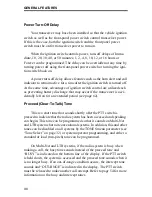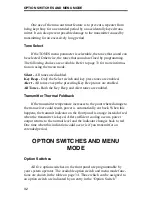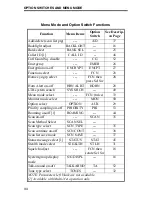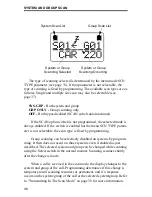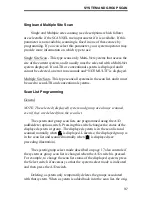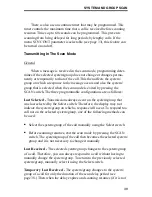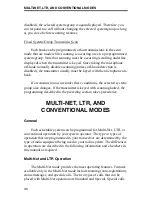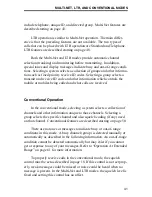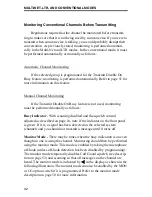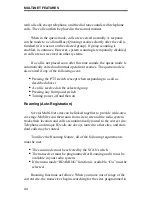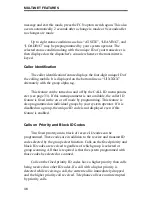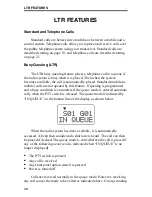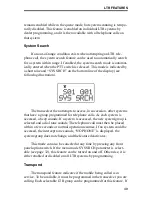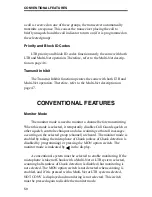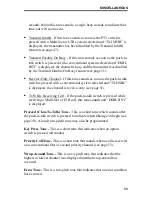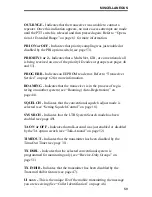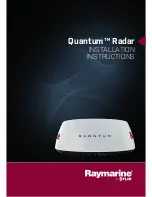
MULTI-NET FEATURES
44
with all calls except telephone, and the dial tone sounds with telephone
calls. The call can then be placed in the normal manner.
When in the queue mode, calls are received normally. A response
can be made to a call and Busy Queuing resumes shortly after the call is
finished (if it was not on the selected group). If group scanning is
enabled, it continues. However, system scanning is temporarily disabled,
so calls are not received on other systems.
If a call is not placed soon after this tone sounds, the queue mode is
automatically exited and normal operation resumes. The queue mode is
also exited if any of the following occur:
•
Pressing the PTT switch (except when responding to a call as
described above)
•
A call is received on the selected group
•
Pressing any front panel switch
•
Turning power off and then on
Roaming (Auto-Registration)
Several Multi-Net sites can be linked together to provide wide-area
coverage. Mobiles can then roam from site to site and the radio system
tracks their location and calls are automatically routed to the correct site.
Telephone and unique ID calls are always routed to other sites, and stan-
dard calls may be routed.
To utilize the Roaming feature, all of the following requirements
must be met:
•
The scan mode must be selected by the SCAN switch.
•
The transceiver must be programmed for Roaming and it must be
available in your radio system.
•
If the menu mode “ROAMING” function is available, “On” must be
selected.
Roaming functions as follows: When you move out of range of the
current site, the transceiver begins searching for the sites programmed in

